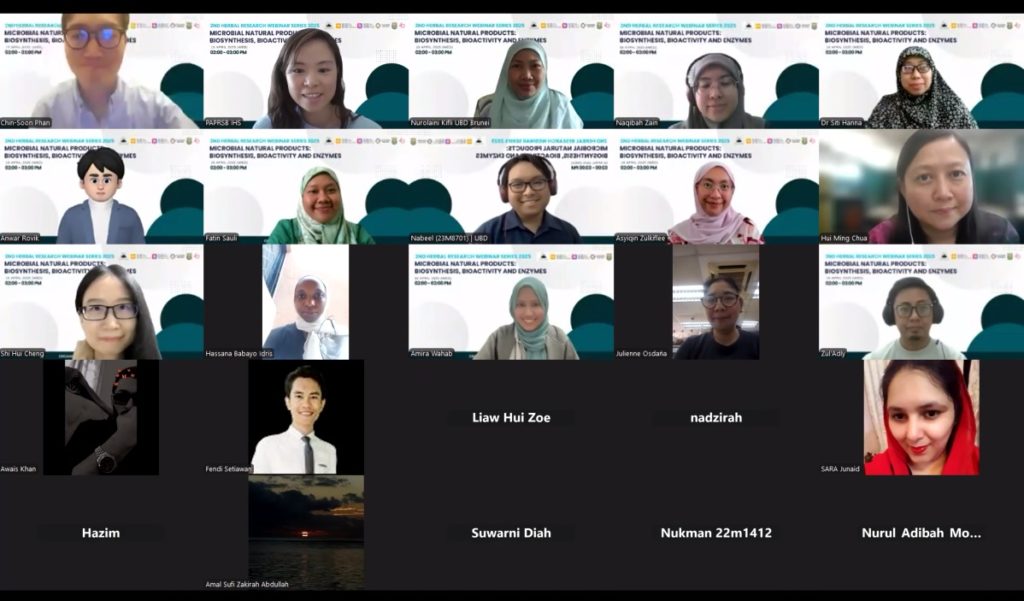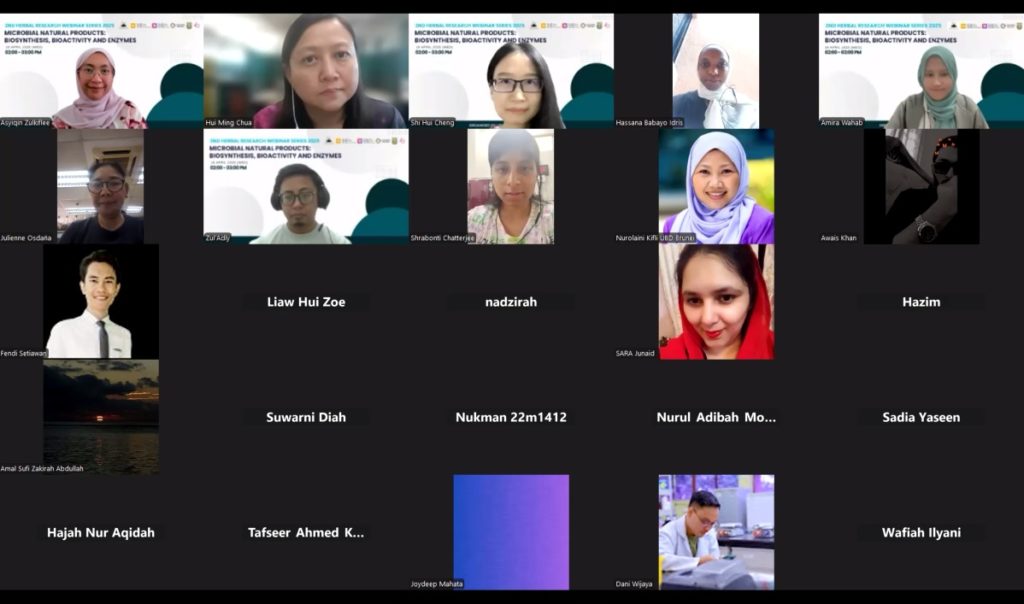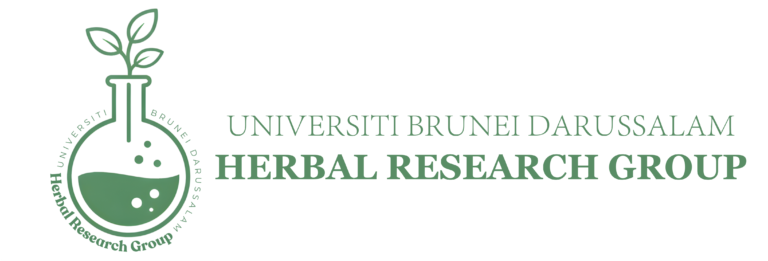The second instalment of the 2025 Herbal Research Webinar Series on the topic of “Microbial Natural Products: Biosynthesis, Bioactivity and Enzymes” was conducted by the Herbal Research Group, Universiti Brunei Darussalam (UBD) on 16th April 2025 via Zoom. The webinar featured an in-depth and engaging presentation by Dr. Chin-Soon Phan who is currently leading his own research team at the Latvian Institute of Organic Synthesis. Dr. Phan, an expert in marine natural product chemistry, shared his latest research on microbial natural products, focusing on their biosynthesis, bioactivity, and the enzymes involved in these processes. The event was attended by 30 participants including staff, student and alumni from PAPRSB Institute of Health Sciences, Sultan Hassanal Bolkiah Institute of Education, Faculty of Science, Academy of Brunei Studies, Faculty of Arts & Social Sciences, Faculty of Integrated Technologies, School of Business & Economics of Universiti Brunei Darussalam as well as IBTE Agro-technology and Applied Science Campus, Universiti Kebangsaan Malaysia, Institute of Sustainable Halophytes utilization (ISHU), University of Karachi ,Universitas Gadjah Mada and Visva-Bharati Central University.
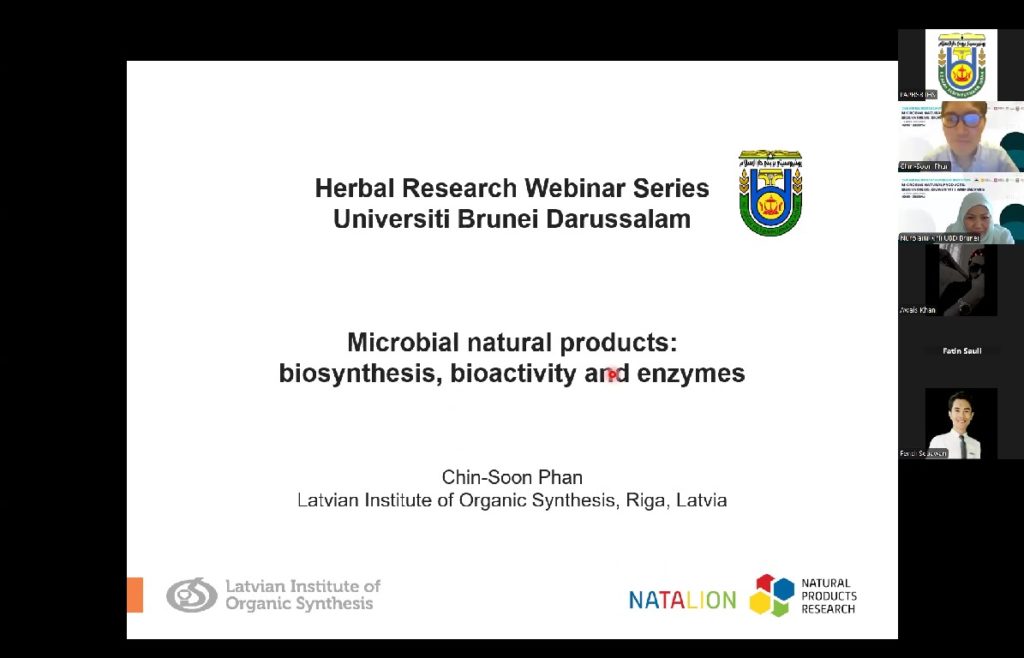
The webinar began with an introduction to the significance of natural products, especially secondary metabolites, which possess diverse biological functions and are critical for drug discovery. Dr. Phan categorised key families of natural products, including terpenes, alkaloids, polyketides, and peptides, highlighting non-ribosomal peptides (NRPS) and ribosomally synthesised and post-translationally modified peptides (RiPPs).
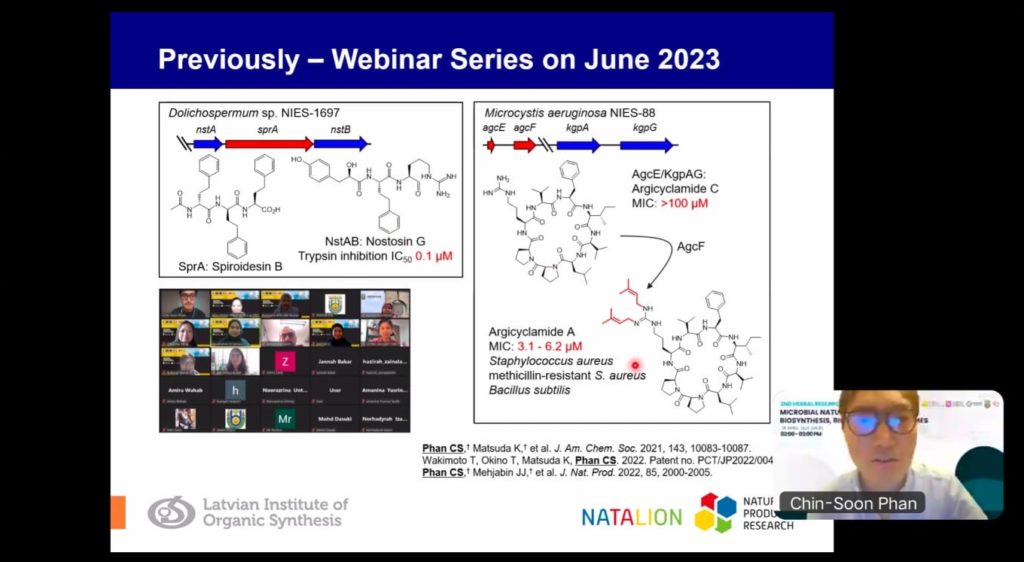
Dr. Phan presented three main research topics:
1. Cyanobacterial Lipopeptides
He discussed new lipopeptides isolated from cyanobacteria, including the structural elucidation process using 2D NMR and LC-MS, and reported a novel peptide with significant cytotoxic activity against breast cancer cells.
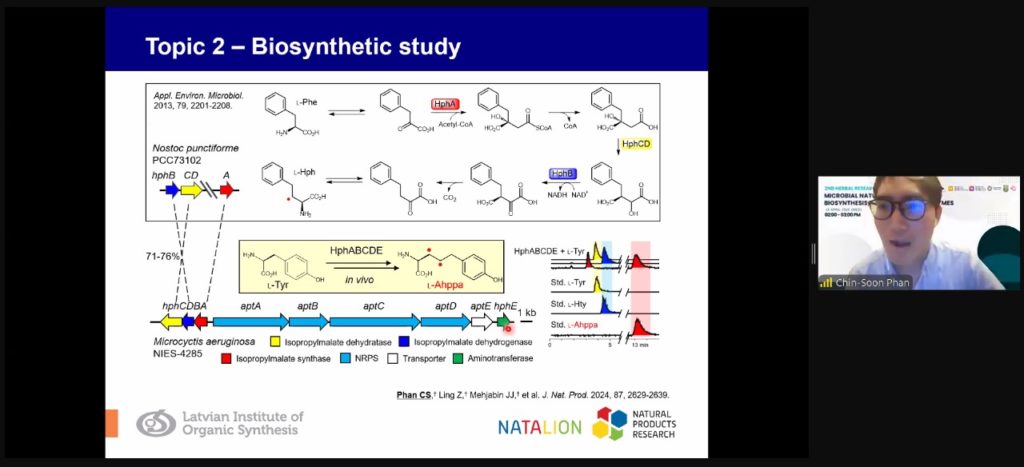
2. Enzymatic Homologation of Amino Acids
Dr. Phan described the discovery and biochemical characterisation of enzymes that perform two-step homologation of amino acids, key in synthesising modified amino acids for pharmaceutical use. His team successfully engineered E. coli to express these enzymes, leading to the biosynthesis of rare amino acid variants.
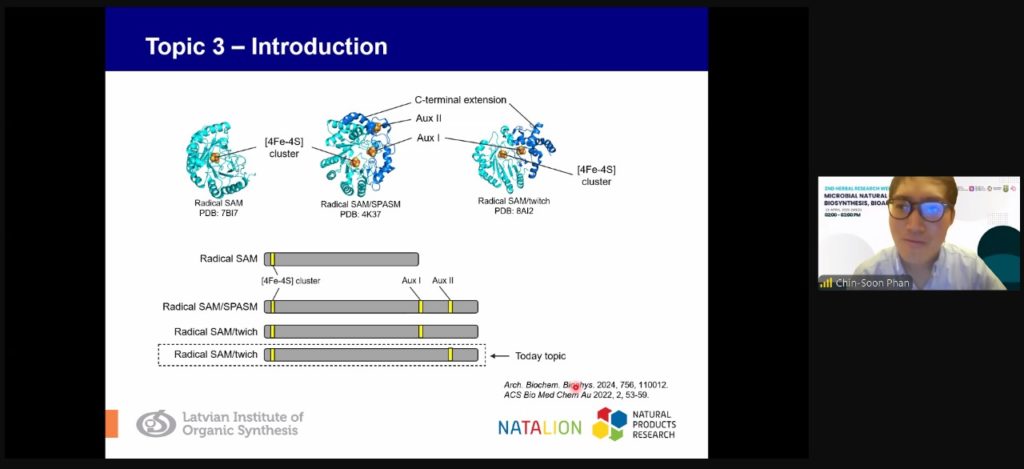
3. Radical SAM Enzymes in RiPPs
He explored radical S-adenosylmethionine (SAM) enzymes involved in RiPP biosynthesis, particularly those catalysing cross-links within peptides to create novel antibiotic structures. He demonstrated enzyme engineering to alter substrate specificity and improve biosynthetic efficiency, contributing to the development of new antibacterial agents targeting resistant gram-negative bacteria.
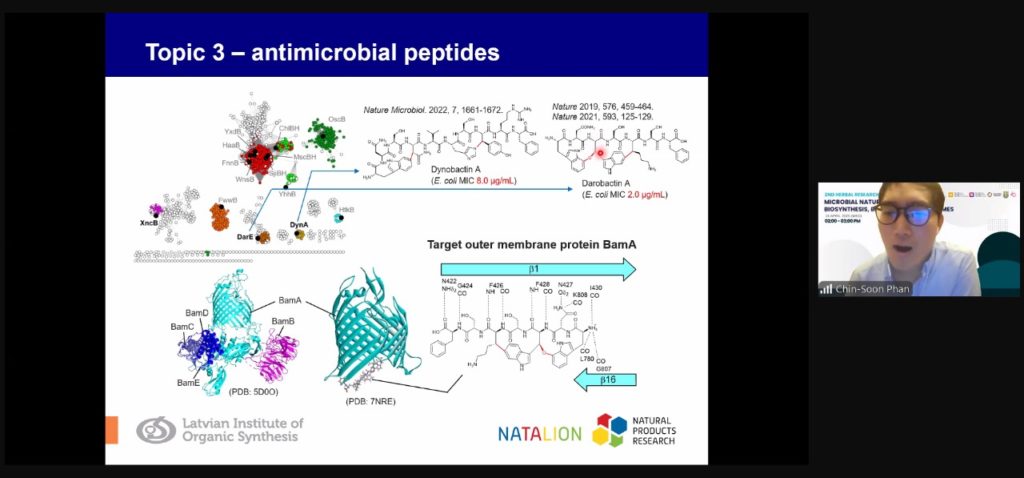
Dr. Phan also shared insights into techniques for identifying antibiotic targets using evolved resistant bacterial strains, which helped confirm novel mechanisms of action involving membrane protein interactions.
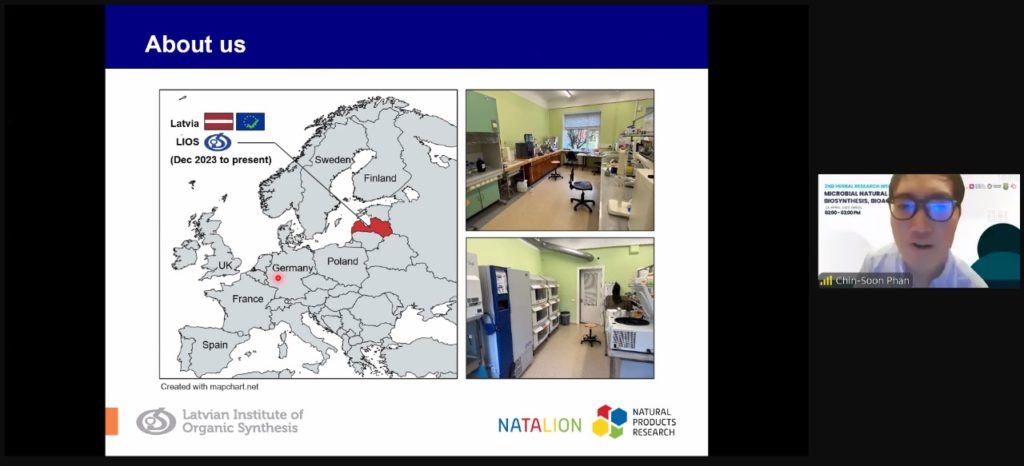
The webinar concluded with a lively Q&A and group photo session. Participants inquired about lab techniques, the process of racemisation detection, and potential internship opportunities. Dr. Phan encouraged collaboration and welcomed interest in joining his lab, while also acknowledging the practical considerations of funding and visa requirements. The session highlighted the role of enzymatic biocatalysis in sustainable chemistry and the potential of microbial natural products in addressing global health challenges.
